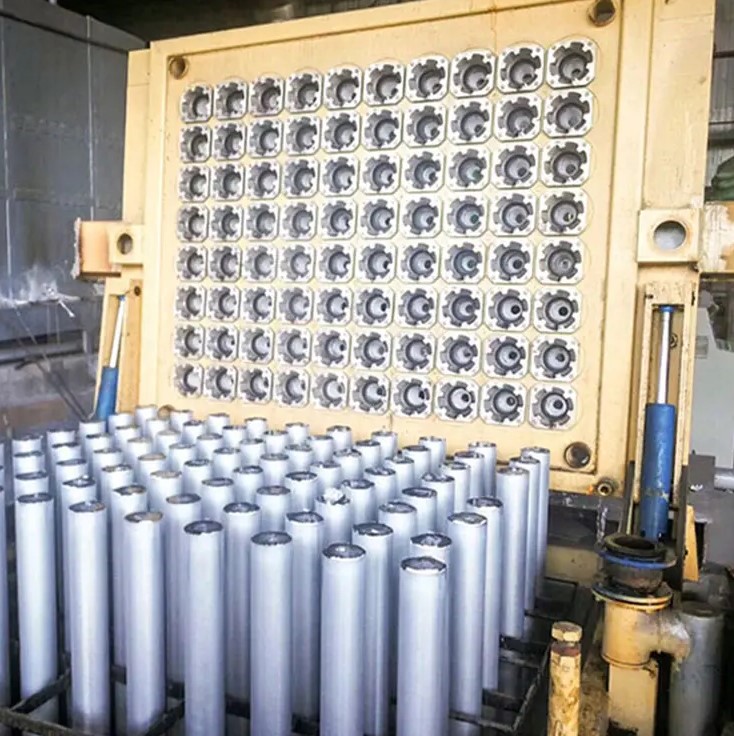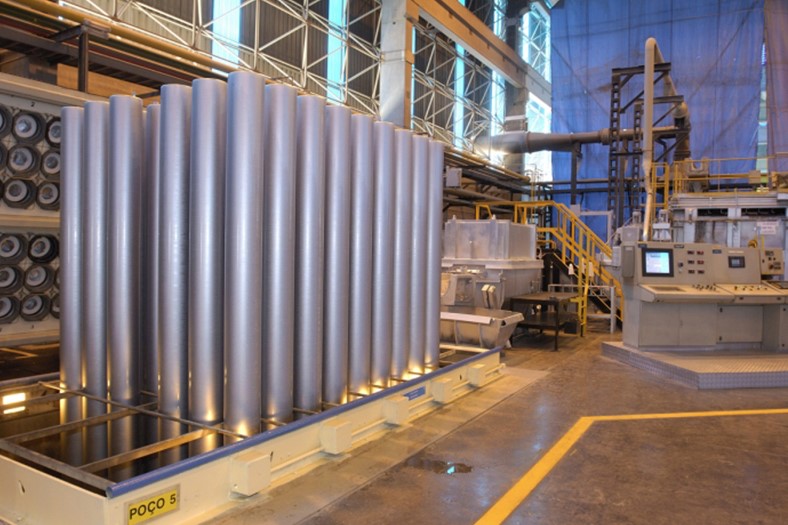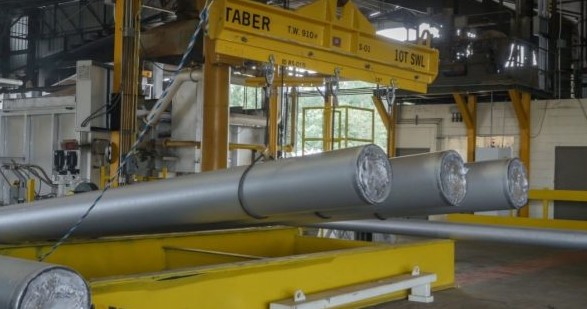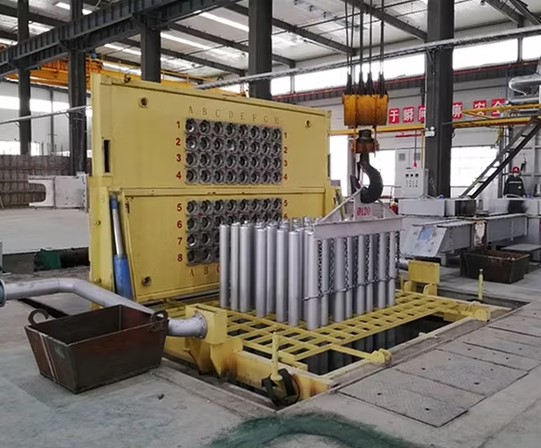Looking for a reliable Aluminum billet casting service that meets strict industrial standards and delivers consistent quality? Stavian Industrial Metal is your trusted partner in precision casting solutions. We specialize in producing high-quality aluminum billets tailored to diverse manufacturing needs, ensuring optimal mechanical properties, dimensional accuracy, and surface finish. Our state-of-the-art facilities and experienced engineering team guarantee efficient, scalable production processes that adhere to international quality certifications. Whether you require small batches or large-scale production, we offer flexible and timely solutions to support your operations across various industries, including automotive, aerospace, and construction.
Aluminum billet casting service is a crucial process in the industrial supply chain, providing foundational materials for various manufacturing sectors. A billet is a solid length of metal with a consistent cross-section, and in aluminum billet casting, molten aluminum is shaped into cylindrical or rectangular bars through sophisticated casting techniques. These billets are later extruded, forged, or machined into finished components used in automotive parts, aerospace structures, construction materials, and consumer goods.
The casting of aluminum billets requires precision, control, and in-depth metallurgical knowledge. Factors such as temperature regulation, cooling rates, alloy composition, and mold design directly affect the billet’s quality and performance. At Stavian Industrial Metal, our aluminum billet casting service integrates advanced technology and strict quality protocols to ensure every billet meets industry standards and specific client requirements.

Aluminum is widely chosen for its combination of lightweight properties, corrosion resistance, and excellent thermal and electrical conductivity. When shaped into billets, aluminum becomes a versatile raw material that can be easily transformed through secondary processes like extrusion or rolling.
Here are key advantages of using aluminum billets in industrial applications:
These advantages make aluminum billets indispensable in producing precision-engineered parts where performance, durability, and cost-efficiency are key priorities.
Aluminum billets produced through casting services play a critical role in various downstream manufacturing processes. These billets serve as raw materials for shaping complex profiles and components essential to several sectors.
In the automotive industry, lightweight and corrosion-resistant aluminum components are vital for reducing fuel consumption and enhancing safety. Aluminum billets are extruded or forged into:
The billets’ consistent material properties allow for precision manufacturing and compliance with stringent performance standards in both commercial and passenger vehicles.
Aluminum’s durability and formability make it a preferred material in construction. Billets are used to create:
Using a high-grade aluminum billet casting service ensures the produced extrusions meet architectural requirements for load-bearing capacity and weather resistance.

State-of-the-art technology plays a pivotal role in enhancing the efficiency, quality, and sustainability of billet casting services. Modern foundries integrate automated systems and monitoring tools to ensure precision and minimize human error.
This widely adopted technique uses a water-cooled mold and continuous casting method to produce uniform billets. The advantages include:
EMS improves internal billet quality by stirring the molten metal during solidification. It promotes a more homogeneous microstructure, reducing segregation and enhancing strength.
Digital control panels and real-time analytics help in maintaining consistent temperatures, tracking gas content, and ensuring alloy composition. This technological integration allows for early detection of anomalies and swift corrective action.
By investing in advanced casting technology, service providers like Stavian Industrial Metal can assure clients of top-tier billet consistency and reliability across every batch.
Partnering with an experienced and reputable aluminum billet casting service provider offers a range of advantages that go beyond the product itself. These benefits have a direct impact on operational efficiency, product quality, and long-term cost-effectiveness for manufacturers.
A professional service ensures billets are produced with precise tolerances, which:
Dimensional uniformity is especially important in high-speed production lines where inconsistency can cause equipment failure or production halts.
Reliable casting services can scale production according to customer demand. Whether clients require small test batches or large-volume orders, professional providers offer:
This level of adaptability supports business growth and helps clients respond quickly to changing market demands.
One of the most valuable aspects of a specialized aluminum billet casting service is access to technical support and material customization. Clients benefit from:
This collaborative approach ensures that the final product aligns with the specific performance requirements of each application.

Sustainability has become a central concern across the metals industry. Forward-thinking aluminum billet casting service providers are increasingly adopting eco-friendly practices that reduce environmental impact without compromising product quality.
Recycling aluminum requires only about 5% of the energy needed for primary aluminum production. High-quality billet casting services incorporate recycled materials, which:
By choosing such providers, manufacturers contribute to a more sustainable supply chain while benefiting from cost savings.
Modern casting facilities use regenerative or hybrid furnaces that significantly reduce fuel consumption. Moreover, emission control systems capture and treat pollutants to ensure compliance with environmental regulations.
Stavian Industrial Metal, for instance, integrates these technologies to uphold environmental standards and maintain operational efficiency.
Even with modern advancements, billet casting can present challenges that, if not managed correctly, can affect the quality of the final product. A professional aluminum billet casting service provider anticipates and mitigates these challenges through best practices and quality control measures.
Molten aluminum is prone to absorbing hydrogen and other gases, leading to porosity in the cast billet. Additionally, non-metallic inclusions such as oxides can weaken the billet structure. To overcome this, services employ:
Regular metallographic inspection also helps in identifying and addressing internal defects early in the process.
Rapid or uneven cooling can cause thermal stresses, leading to hot tearing or cracking. Segregation, where alloying elements concentrate in certain areas, can also degrade billet quality. Mitigation strategies include:
By employing these solutions, casting services ensure mechanical consistency and extend the life span of the billet in subsequent processing.

As the demand for lightweight, high-performance materials increases, the aluminum billet casting service industry is evolving rapidly. Several trends are shaping the future of billet production and influencing how manufacturers approach sourcing and design.
Industry 4.0 technologies such as IoT sensors, AI-driven quality control, and predictive maintenance are transforming casting operations. These innovations allow:
Facilities that integrate these technologies offer higher consistency and agility in meeting complex customer needs.
Regulations and consumer expectations are driving further investment in green technologies. Future billet casting services will likely see:
Stavian Industrial Metal is actively aligning with these trends to lead in eco-responsible metal production.
As industries demand more specialized material properties, billet casting services are moving toward in-house alloy development. This enables clients to achieve:
Such innovation strengthens the strategic role of casting services in product design and performance engineering.
As a leading provider in the region, Stavian Industrial Metal distinguishes itself with its commitment to quality, innovation, and customer satisfaction. Our aluminum billet casting service integrates advanced equipment, sustainable practices, and a highly trained technical team to meet global standards.
Our holistic approach ensures clients receive not only top-grade billets but also technical guidance and support for every stage of their production cycle.
Learn more
Benefits and Applications of Aluminum Structures Today
Aluminum Profile Sliders: Characteristics, Applications, and Latest Price List
Composite Aluminum Panels: Applications, Installation Tips, and Prices
Aluminum Round Profile: What is it? Features, Specifications, Pros and Cons
Address
Website: https://stavianmetal.com
Email: info@stavianmetal.com
